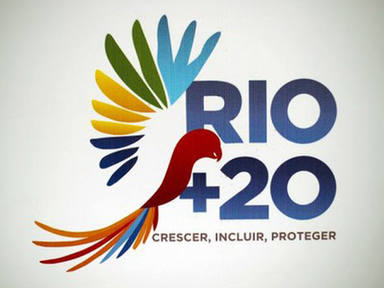Rio + 20 meet must focus on social equity
- By Leisa Perch
 0 Comment(s)
0 Comment(s) Print
Print E-mail Shanghai Daily, June 21, 2012
E-mail Shanghai Daily, June 21, 2012

The largest United Nations conference in history is happening now in Brazil. Rio+20, the UN Conference on Sustainable Development is assembling more than 50,000 people and more than 130 heads of state and government.
The two main themes of Rio+20 - the green economy in the context of poverty eradication and the institutional framework for sustainable development - can help us mobilize civil society in building a new, inclusive development agenda that recognizes the differentiated responsibilities and capacities of not only countries and multilateral organizations, but also those of individuals, enterprises, grassroots movements, the media, as well as rich and poor people.
Building civil society support for a global change agenda will require immediate policy efforts that prioritize inequality reduction. The cost of inequality is clear when one is confronted with the fact that the average income of the world's richest 5 percent is 165 times higher than the poorest 5 percent.
In a world where the richest 5 percent earn in 48 hours as much as the poorest in one year, the need to reconcile growth with equity is clearly evident.
With no productive inclusion and employment opportunities for the poor and vulnerable, mounting skepticism and the bitter after-taste of the global financial-economic crises will hamper effective changes in discourse and policy.
Evidence of cyclical disequilibrium - economic, social and environmental systems out of sync - reinforces the need for new models of development and resilience. Policies which integrate the social and environmental aspects of development will be pivotal in this context.
We can neither postpone this reality nor secure a mortgage which future generations will have to pay. Policy failures from such short-sightedness have been costly - in the lives of the peoples and in the economies of the North and the South.
The foundations of a consensus around sustainable development goals would represent a significant contribution of Rio+20 for the future.
Such goals must not focus only on environmental targets; they must address critical links between human beings and nature so as to guarantee: (1) improved access to employment for marginalized groups as we "green" the economy; (2) reduced social impact of environmental crises; (3) reduced differences between urban and rural people in access to basic services, particularly water, energy and sanitation; and (4) that more renewable energy does not come at the expense of either the availability of and access to food.
There is no doubt that there is a sense of urgency at Rio+20. Twenty years ago we looked into the future and became worried about the possibilities of that future. We asked ourselves what we could do to make sure future children did not receive a bill they couldn't even imagine how they could pay.
Now, some of those children are adults in Rio+20, asking the same questions and why we did not do more. Today I heard one young lady ask the latter question in a Rio+20 side event. We have to be able to answer. The task for the next few days and weeks is therefore less about restating the priority of sustainable development and more about agreeing on how we will act if it is a priority and how soon.
Let us not only ask our leaders to make the hard choices. To turn this ship around, as a colleague Gaia Paradiso has described it, will take the entire crew as well as the passengers. We cannot just leave it to the captain(s) alone.
Our commitment should be to continue to work to find innovations and bring them to light, ones which build social capital and promote innovation, particularly engaging our youth in the dialogue and the solutions.
We also want to be better at recycling, re-using and being more carbon-neutral. We all need to do better. How will you start?
The author is policy specialist and team leader for rural and sustainable development at the UNDP Brasilia-based International Policy Centre for Inclusive Growth (IPC-IG). www.ipc-undp.org. Shanghai Daily condensed the article.





